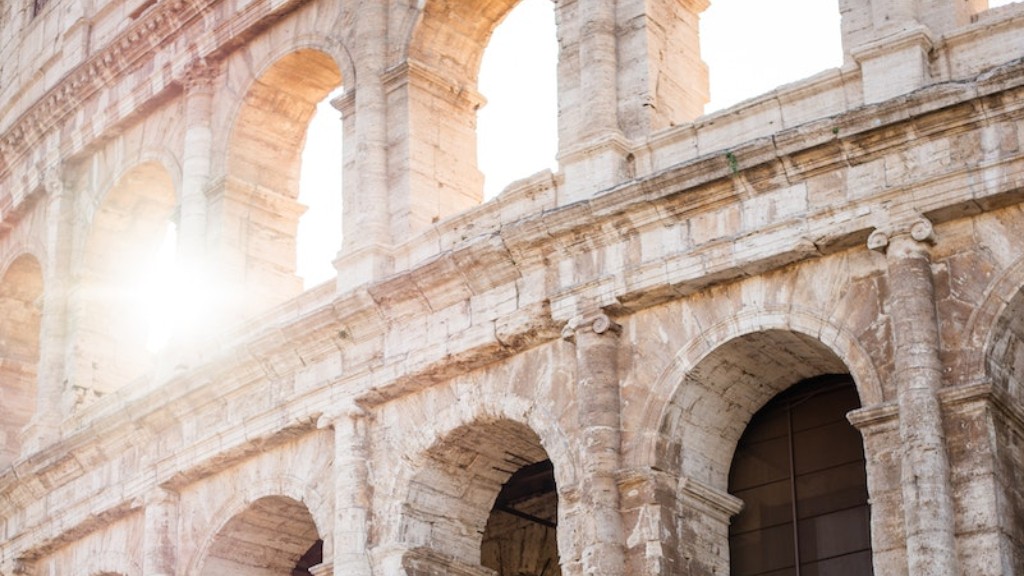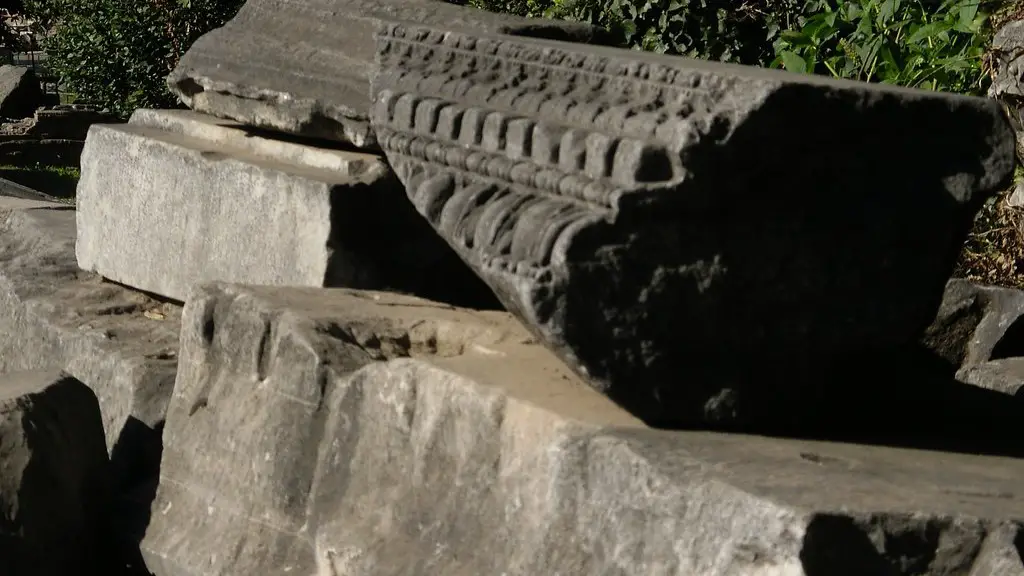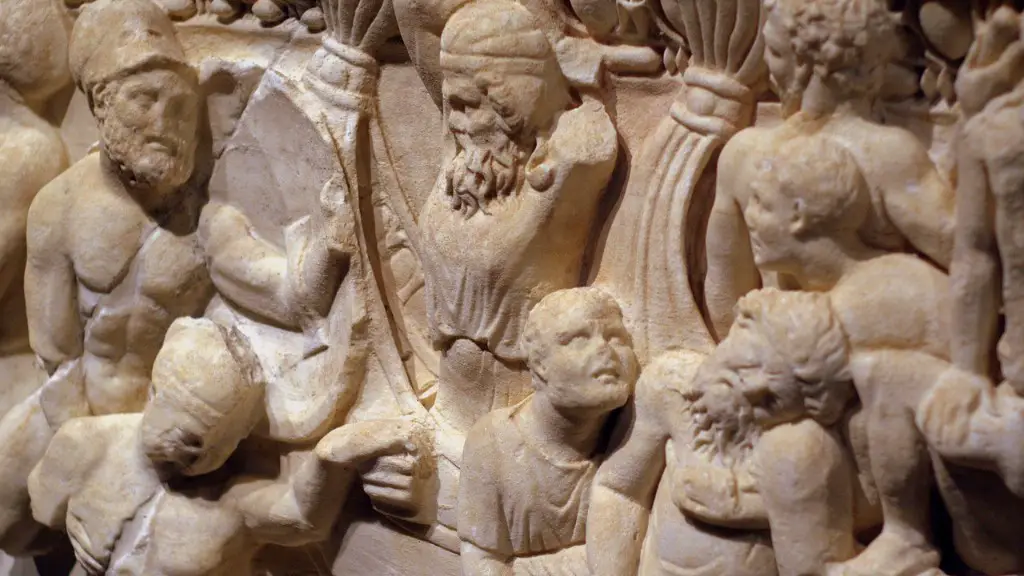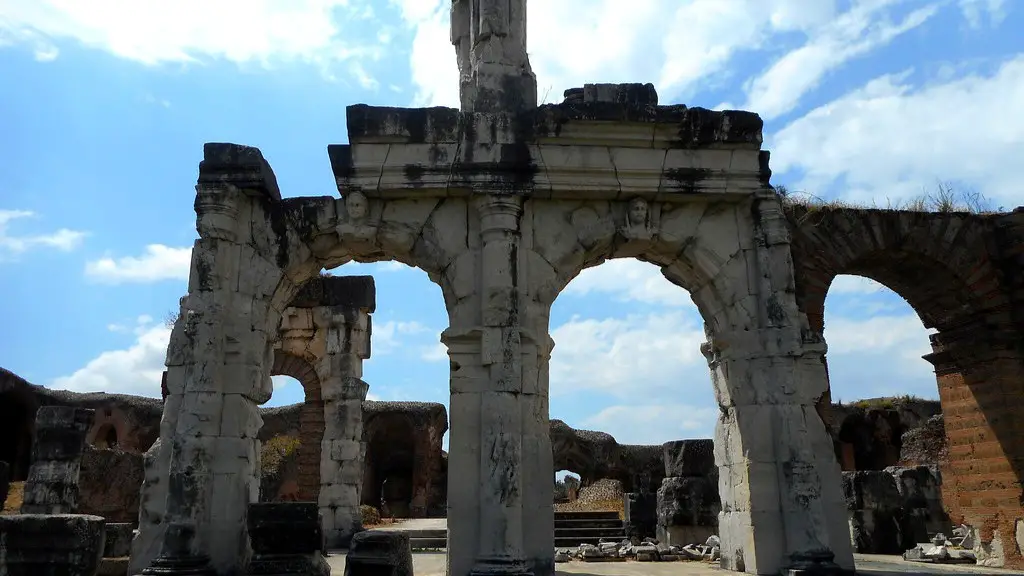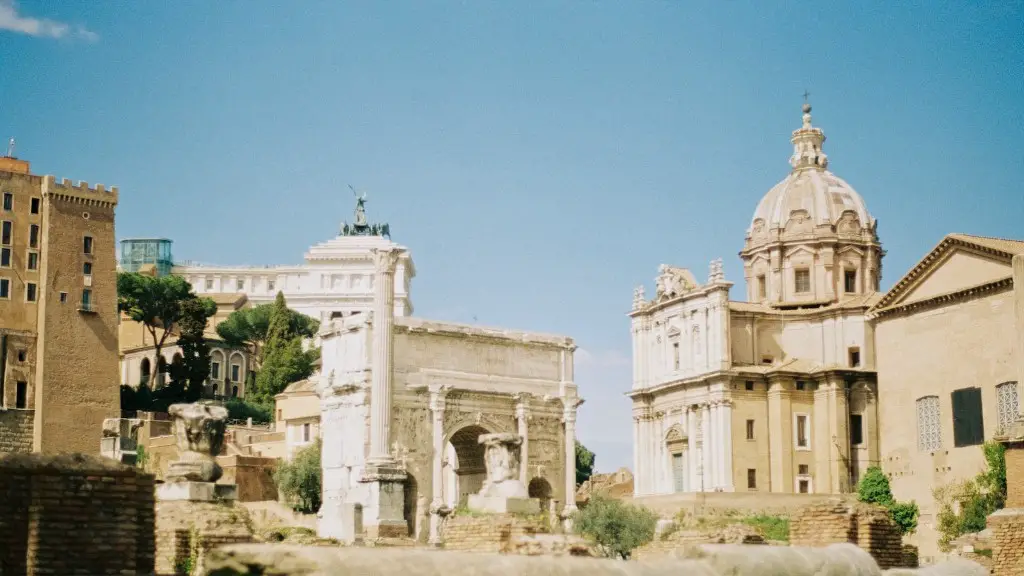Ancient Rome was a class-based, patriarchal society with strict rules about who could take on certain roles and who had which privileges. While the wealthy and powerful elites and rulers of ancient Rome had their own specific titles and ranks, the everyday worker was simply referred to as a laborer, a plebeian, or a colonus.
The term ‘plebeian’ itself, which has its origins in the name of the fifth-century B.C. Roman plebs, or commoners, was often used to describe someone who was a part of a family or of the middle or lower classes. A plebeian was usually an unskilled or low-level worker, and may have worked in fields or as a tradesman or craftsman.
The term ‘colonus’ was also used in ancient Rome, and referred to a farmer, tenant, or sharecropper. This class of person was most likely to be seen working on the vast estates owned and managed by the wealthy and powerful, who themselves were collectively known as the patricians. Coloni were, essentially, the working class of Ancient Rome and would have had little economic power or influence.
In addition to plebeians and coloni, the term ‘laborer’ was likely used to describe those who were not wealthy or powerful. The laborers of Ancient Rome would have been responsible for the most basic manual tasks such as digging ditches, making bricks, and general construction work. They were essential to the functioning of the Roman Empire but were largely voiceless and powerless.
Laborers, plebeians, and coloni all had one thing in common: their labor was essential for the Roman Empire to thrive, but it was often not rewarded with privilege or recognition. History shows us that these men and women worked hard and devotedly, but it was not uncommon for them to be treated harshly and with little respect.
It is difficult to know precisely what ancient Romans thought of the laborers, plebeians and coloni of their society. What we do know is that they were essential to the Roman economy and the functioning of the Empire, but were rarely given honor or recognition.
Equity of Opportunities
In contrast to other societies of the time, the Ancient Romans did recognize that there needed to be some level of equity of opportunities. One such example of this was the law known as the Lex Agraria, which sought to prevent the wealthy and powerful patricians from buying up too much land and thus using up valuable resources that could otherwise be used to feed and employ the general populace.
This law, which was passed in the second century B.C., stipulated that individual members of the Roman Republic could not own more than 500 iugera (437 acres) of land. This law had a significant impact on the stratification of the classes at the time, as the wealthy landowners were now required to make sure that sufficient land was available for the plebeians and coloni to work and to feed themselves.
In addition to the Lex Agraria, other laws aimed at creating a more equitable society for the plebeians and coloni included the right to vote in major public elections, and the right to own and inherit property. These laws made it possible for members of the working class to have greater opportunities and privileges than they were previously afforded.
Overall, it appears that the Ancient Romans had a well-developed understanding of the importance of the lower classes in their society, even if they were not given the same recognition or privileges as those in the higher echelons.
Legacy
The legacy of the plebeians, coloni, and laborers of Ancient Rome lives on in our modern society, where notions of social equity and justice are as important as ever. These groups of people, who were essential in building the Roman Empire, are now looked upon with admiration and respect for their hard work and dedication.
Their struggles and successes have served as an example for others in their pursuit of fairness and the rights of lower classes. In our current society, we need to strive to maintain their legacy and to protect the rights of all workers, regardless of their social class, economic background, or gender.
The Ancient Romans may not have fully appreciated the importance of their plebeians, coloni and laborers, but modern society should recognize their vital role in the success and prosperity of the Roman Empire.
Social Impact of Ancient Rome
The impact of ancient Rome’s socio-economic system is still seen today. The idea of having a legal system in which political and economic power is divided between classes has endured through the ages, and is still part of how modern countries and societies function.
In many cases, the concept of democracy—where individual citizens are empowered to have a voice—has its roots in the democratic reforms instituted by the Romans. Even today, the Roman Republic stands as an enduring example of a functional democracy, and its model for social mobility and justice for all is an inspiration for modern governance.
The legacy of Ancient Rome is also seen in the language it has left behind. The Latin language, which was the basis of the Romance languages spoken in Europe, has profoundly shaped the way we communicate today. Its influence on modern languages can be seen not only in vocabulary but also in syntax, grammar, and literature.
Perhaps the most lasting social impact of Ancient Rome is the way its ideas and values have been passed down through history and integrated into many facets of our lives. The Roman Empire was a powerful force that shaped the way societies were organized and held together, and its impact is still felt today.
Influence on Modern Society
The impact of Ancient Rome on modern society is far-reaching. Its values, social structure, and systems of government have been an inspiration and guiding force for many of the world’s great civilizations, and its influence can be seen in many aspects of today’s society.
The concept of human rights, which is the basis of much of our modern legal systems, can be traced back directly to Ancient Rome, where the concepts of justice and fairness were first developed. The influence of Ancient Roman law can be seen in many of the constitutions and governments of modern countries.
The legacy of Ancient Rome is also seen in the way it shaped the development of art, literature, and culture. From the works of Virgil, Cicero, and Ovid to the architecture of the Colosseum and the Pantheon, the imprint of Roman culture can be seen in many aspects of our day-to-day lives.
Many aspects of modern life, from our language and literature to our legal and political systems, owe a great debt to the legacy of Ancient Rome. Its impact can still be seen in many aspects of our society, from its architecture to its values and beliefs.
Conclusion
The legacy of Ancient Rome is vast and far-reaching. Its influence is still seen in many aspects of our lives, from its language and literature to its legal system and its ideas of justice and fairness. The plebeians, coloni, and laborers of Ancient Rome were essential to the rise and success of the Roman Empire, and their legacy should serve as an inspiration to us today.
